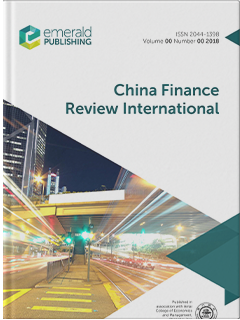ESG调查:投资者、机构和公司
IF 7.6
1区 经济学
Q1 BUSINESS, FINANCE
引用次数: 8
摘要
目的在过去的二十年里,环境、社会和公司治理(ESG)和企业社会责任(CSR)的主题吸引了越来越多的兴趣,反映出投资者和企业对环境、社会及治理问题的敏感性越来越高。设计/方法论/方法本调查从投资者、机构和公司的角度概述了有关ESG/CSR的学术文献。我们首先讨论ESG和CSR的定义及其相互关系。发现我们接下来描述如何衡量ESG,并注意ESG数据的衡量和质量方面的问题,以及不同ESG衡量标准之间的差异。然后,我们将注意力转向投资者,研究哪些类型的投资者投资ESG以及机构投资者在ESG中的作用。从公司的角度来看,我们讨论了公司自己为什么要进行ESG。我们还总结了ESG对企业影响的文献:ESG如何影响企业的融资、披露和报告活动以及企业绩效。最后,我们描述了ESG和CSR对企业和投资者的关注带来的其他后果。原创性/价值本调查从投资者、机构和公司的角度概述了有关ESG/CSR的学术文献。本文章由计算机程序翻译,如有差异,请以英文原文为准。
A survey on ESG: investors, institutions and firms
PurposeOver the past two decades, the topics of Environmental, Social and Corporate Governance (ESG) and Corporate Social Responsibility (CSR) have attracted an increasing amount of interest, reflecting a growing sensitivity of investors and corporations towards environmental, social and governance issues.Design/methodology/approachThis survey offers an overview of the academic literature on ESG/CSR through the lens of investors, institutions and firms. We first discuss the definitions of ESG and CSR and their relationship to each other.FindingsWe next describe how ESG is measured and note problems with the measurement of and quality of ESG data and discrepancies between different measures of ESG. We then turn our attention to investors, examining what types of investors invest in ESG and the role of institutional investors in ESG. From the firm's perspective, we discuss why firms themselves conduct ESG. We also summarize the literature on the impact of ESG on firms: how ESG affects firms' financing, disclosure and reporting activities and firm performance. Finally, we describe other consequences of the focus of ESG and CSR on firms and investors.Originality/valueThis survey offers an overview of the academic literature on ESG/CSR through the lens of investors, institutions and firms.
求助全文
通过发布文献求助,成功后即可免费获取论文全文。
去求助
来源期刊

China Finance Review International
BUSINESS, FINANCE-
CiteScore
12.40
自引率
1.20%
发文量
112
期刊介绍:
China Finance Review International publishes original and high-quality theoretical and empirical articles focusing on financial and economic issues arising from China's reform, opening-up, economic development, and system transformation. The journal serves as a platform for exchange between Chinese finance scholars and international financial economists, covering a wide range of topics including monetary policy, banking, international trade and finance, corporate finance, asset pricing, market microstructure, corporate governance, incentive studies, fiscal policy, public management, and state-owned enterprise reform.
 求助内容:
求助内容: 应助结果提醒方式:
应助结果提醒方式:


